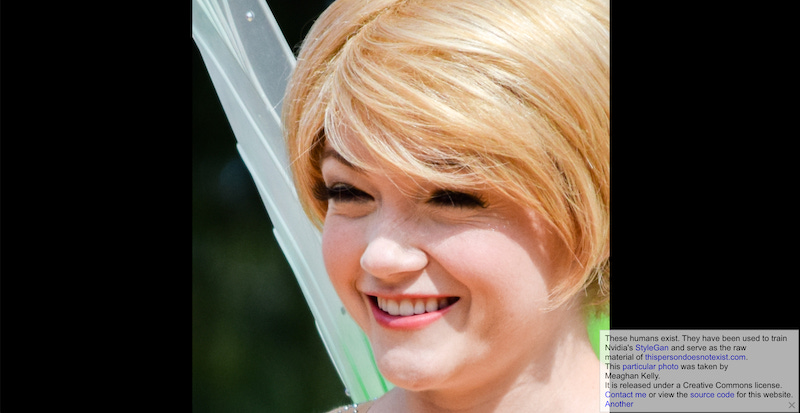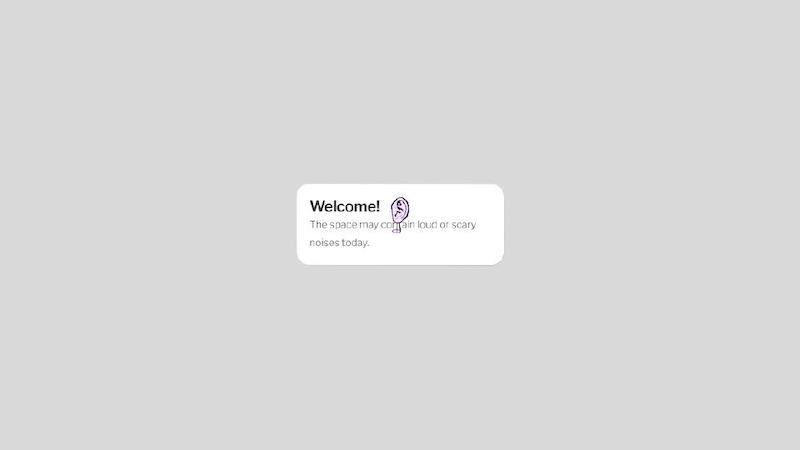All of Us
And a small experiment.
Another Sunday, Another Naive Weekly — Observations From The Internet Wilderness.
It is time for an experiment. I want to know if it is possible for us to make one reader interview together? All of us. I call it The Reader Interview, because our voices will become one.
For the experiment, I’ve created one Google document with seven of the questions you know from the reader interviews. The document is open, meaning anyone with the link is free — and encouraged — to write in it. I don’t mind how much or how little you contribute. It can be an entire answer, an addition to what someone else has already written, or a comma. But I do hope you participate in the experiment.
I’ll publish the answers in next Sunday’s newsletter, so please make sure to add your words latest by Friday. Thank you for playing along.
With care,
Kristoffer
VISUALLY PLEASING
READER INTERVIEW
Emmy Laura Pérez Fjalland writes my favourite newsletter. The newsletter is in Danish, but I encourage you to subscribe, explore the links and translate her words. If you do, you’ll witness how another, regenerative and poetic world already exists, a world she carries with her.
K: Who can write the future?
Emmy: Futures. I think it is really important that there is not one future, but that different futures unfold differently both in bodies, histories and places. These futures unfold individually and collectively, but of course some have more power than others.
I am pottering with this idea that the future does not really exist or that the future is not placed within a linear-concept that we are heading somewhere. This is not new. A talk by the ecosystem researcher Sandra Diaz made me think about the nonlinear very materially. She told us that all that we are made of — the atoms — has ‘always’ been ‘here’ on Earth. We never leave.
Along with the circular-galaxy-dance we are part of, the futures then seem physically/materially/biologically/spiritually in or part of the grounds and air. Here they are weathering and composting, and with time turn into something else. The mother eats the earth grown foods while the baby grows inside her womb. It is a planetary connection and time-making. It is thoughts I am playing with — also in my research about regenerative practices, multi-species and intergenerational liveability.
K: How do you think about time?
Emmy: Continuing the future question, then, maybe, time does not even move as we so often phrase it. Time takes place, and maybe time is plural; tiny, slow, continuous, uncanny, and asynchronous transforming practices. Not going anywhere, but taking different shapes, able to do different things with other things and beings.
These ideas about time and futures, can somehow retell and reshape how we may think and act in these Dragon Times of environmental change. Times significantly influenced by certain human ideas about striving for progress and growth (for a selected few).
To quote Donna Haraway “Staying with the trouble requires learning to be truly present, not as a vanishing pivot between awful or Edenic pasts and apocalyptic or salvific futures, but as mortal critters entwined in a myriad of unfinished configurations of places, times, matters, meanings.”
K: Where do you go to get lost?
Emmy: To me going off-grid and out of the maps is about losing track and just being alert to the places you are and your sense of place. But it is also about stepping out and being unreachable, unproductive, and self-sustaining. To me this way of getting lost is about finding the ways to walk and be after being lost in too much workload, news and media consumption, and relational concerns.
K: Where do you go fishing for different feeds?
Emmy: The question reminds me of such a lovely experience; a beautiful fishing trip with a close friend. A morning in October, we got up at 4am and as we reached the fishing site the sun rose. The sky was spectacular and the air was crisp as the morning. I love those hours.
I had never tried fishing before, and to be honest, I was not that eager to ‘hook’ someone up. But I was fed by standing there and waiting, while watching the waters, sensing the stream through the fishing pole, and the cold wind that scratched my skin and made my nose run.
‘Fishing for feeds’ is to me about gathering and taking time to wait, observe, sense and read the world around us and within ourselves. Then I will continue the gathering more deliberately by reading words and landscapes, and its many actors, practices, histories and rhythms.
Waiting and not ‘scrolling’ requires such discipline in the times we live in. It is a time and space for things and thoughts to rest and come. But after having too many cramped moments feeling too distressed to think, write, mother and be, I really try to insist on having these moments. I am not good at it yet, but I practice it.
K: What emotion is lost online?
Emmy: I can only see a mediated version of my mother on video calls - as she lives in Spain and I in Denmark. In august it was so painful to say goodbye to my dying father in Colombia through video calls; there are no words for these situations. All I wanted was to hold his hand, and now I miss the smell of my mother so much that it aches in my body and takes my breath. But please, do not make it fake. Touching skin and smelling microbiome matters. They connect us beyond our words and visuals.
K: How do you prepare for death?
Emmy: Everyweek, I read and study amounts of apocalyptic stories and information about the environmental loss, damage and destruction. And with outcomes that change life and living as we know it. These will create societal battles that have followed every lack of resources and land, environmental and climatic instabilities.
I get upset, sad, angry and scared. I feel a deep sorrow - lost histories, lost futures. What takes me out of the paralysing anxious moments is working with those who try to do something different. In my field of research; regenerative landscape practices.
Also, the thoughts about how we all stay and compost, and the interplanetary-galaxy-dances and stories of stardust, and deep time stories of sea-monsters, ancient kelp and once-undersea-rocky-landscapes, all help me prepare for death. These are my spiritual guides.
ROADSIDE FLOWERS
INTERNET STORIES
“The more we google, the less we can know,” is quite a statement to open an essay with. In Real Life Mag, Megan Marz reflects on how search engines deprive information of context and turn everything into answers. The risk of easy answers is that we forget the importance of not knowing.
Back in 2017, when we started Techfestival, the list of quality books offering counter narratives to the Silicon Valley unicorn obsession was short. Therefore it makes me extra happy to see the strong list of tech books published this year offering different voices and perspectives. Perfect inspiration for holiday gifts. Top on my list is Blockchain Chicken Farm which I’ve heard compared to James Bridles’ New Dark Age in terms of writing.
INTERNETMEZZO
A collection of movie computer interfaces.
Hi, I’m Kristoffer and you have just read Naive Weekly — Observations from the Internet Wilderness.
Last week this newsletter was sent to 690 people. Thirty are crazy enough to chip in every month/year to support me making time to write this newsletter: Nikolaj, Lars, Ditte, Jakob, Antal, Anders, Sascha, Cecilie, Søren, Dries, Tina, Gautier, Sarper, Maarten, Mystery x2, Joshua, Thomas, Mikkel, Aydo, Lukas, Hans, Vibe Johanne, Csongor, Dad, Yinka, Stine, Troels, William & Angela!
Photograph by Ana Santl.
<3
Kristoffer









